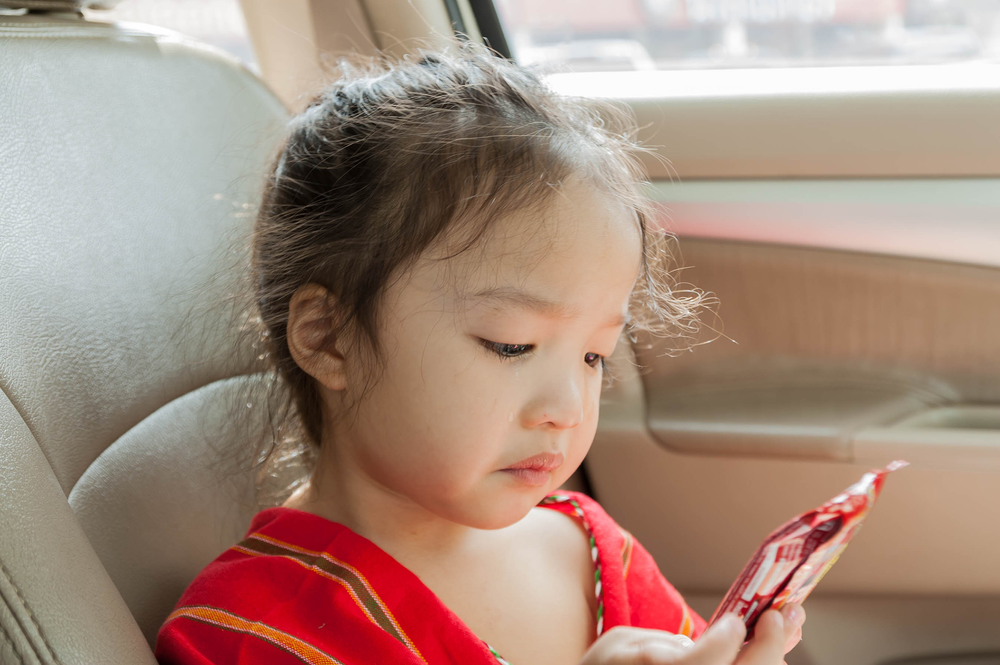
For older children, who have a more developed sense of themselves separate from their parents and their ability to influence their environments, separation stress can take on a whole new intensity. Children who may have been transitioning between spaces with ease might suddenly seem anxious again, holding tight to you as a parent or demonstrating full tantrums as they approach your leaving. And since this time of development often comes concurrently with other significant changes (new siblings, going to school for the first time, etc.) it can be hard to determine whether new demonstrations of separation stress are because of the separation itself or the last straw for a child who needs to feel a little more control of their world.
In your Montessori classroom, this often appears for younger children a few weeks after the school year begins, when teachers and parents have gotten more at ease with the routines of the classroom and the children seem to be settling in. It’s almost as though the children, who have been more self-restrained as they’ve learned about their new environments, feel comfortable enough now to test them. Developmentally, that’s a positive step, because it demonstrates the child’s understanding of their own agency and influence. But it can bring new challenges, especially when it’s time to say goodbye in the morning.
Children this age can understand more abstract concepts, so talking them through what’s concerning to them makes more sense than it may have when they were toddlers. Remind them that it’s ok to feel anxious without attaching judgment to those feelings. Avoid shaming the stress with language like, “Big boys don’t cry,” and instead mirror back to them how you see them feeling. “You look nervous. It’s ok to be nervous in a new place.” Remind them, too, of times when they may have felt and overcome these emotions before. “The first time you went to Grandma’s house, you were nervous because of the barking dog next door. But, remember, you found your courage and we had a great time!” This affirming language, coupled with the same reliable, routinized goodbyes as you have established earlier in the year, will help your child to conceptualize why they are feeling anxious and your confidence in them to move through it.
Remember, too, that children in Early Childhood are comforted by routines and predictability. If your child is struggling in the morning transitions, be sure that they are getting to bed at time with a safe and reliable routine, that your mornings at home are as calm and predictable as possible, and that you get to school on time. Your child’s teachers have worked time in to the school day for transitions. Arriving after the morning arrival time is done is a disservice to your child, taking from them the opportunity to ease in to the classroom before it’s already at full speed and making them feel like an outsider to the buzz of the room before they’ve even had a chance to put up their bag.
Finally, in stressful transitions, your child may ask for the comforts they enjoyed when they were younger. Remind them that they are capable and that you know they are courageous and safe, and avoid slipping into routines that were appropriate for them when they were toddlers. It’s not always easy, and sometimes keeping that calm, confident face on in the midst of your child’s tantrum may be exhausting. Have some patience with yourself as you support your child.
Your child’s teacher will be able to talk with you if the transition to school is out of sync with what they’ve come to expect. If you’re a few weeks in to the school routine, it’s a good time to drop a note to ask how things are going after arrival. If your child is struggling with the transition, ask for a call to talk through what you can each do in saying goodbye and greeting your child to make sure they feel welcomed and safe on both sides. The more sure you are that you are caring for your child and the more confident you are that their teachers at school are doing so, as well, the more quickly you’ll all move through these early stressors and find your pace at school.
#FirstPlane #ForParents #Primary
